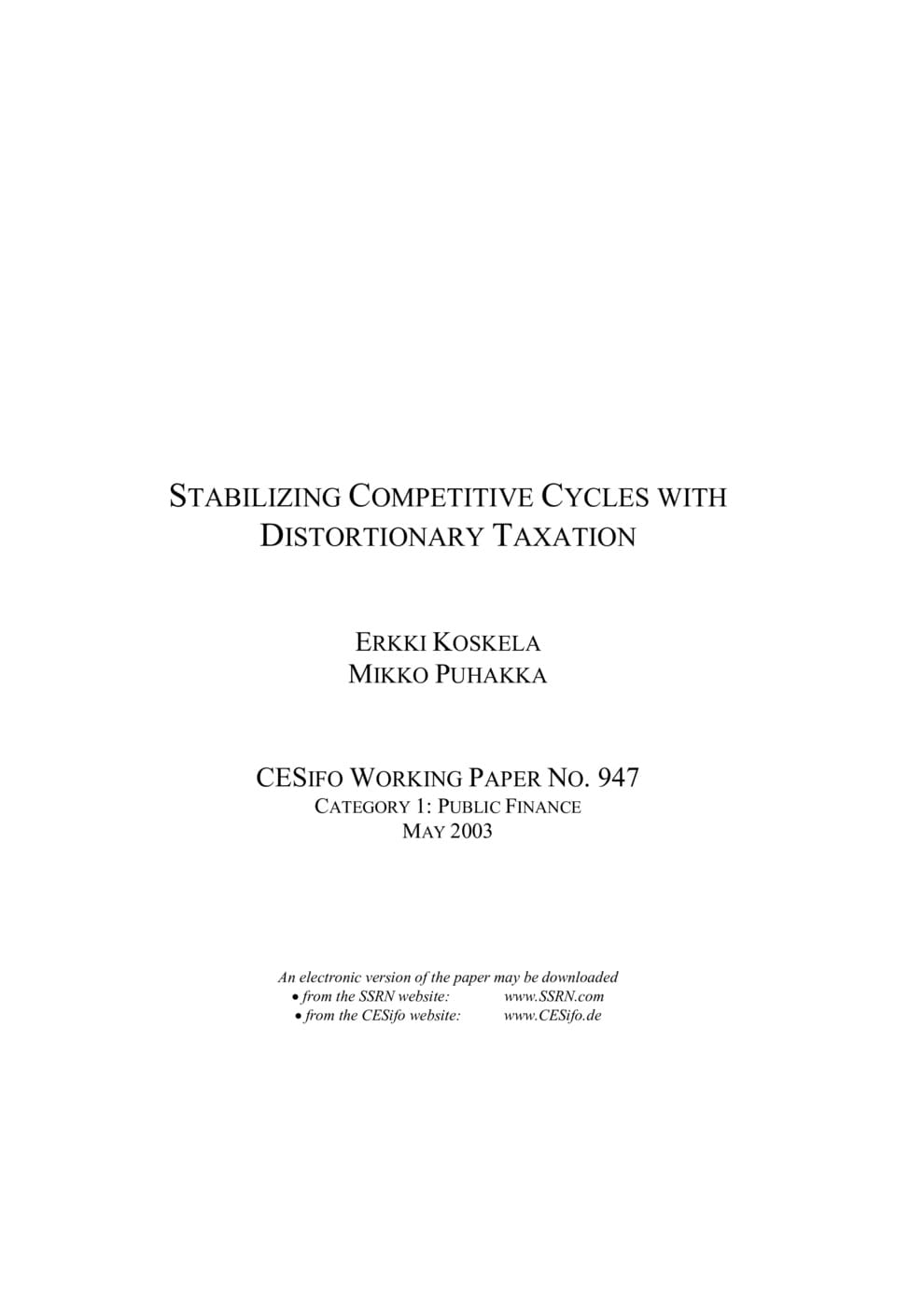Stabilizing Competitive Cycles with Distortionary Taxation
CESifo, Munich, 2003
CESifo Working Paper No. 947

We utilize a simple overlapping generations model with a balanced budget rule to study the effect of distortionary taxation on cycles and local stability of equilibria. We show that under proportional taxation there is a critical tax rate above which cycles will vanish, while in the case of linearly progressive taxation there is a critical level of exemption below which cycles will vanish as well. Hence, a sufficiently high tax rate and a low tax progression eliminate cycles. If the lifetime utility function is quasi-linear, increasing the tax rate can cause the economy to become locally unstable both with proportional and linearly progressive taxation so that tax exemption does not matter. Finally, if the lifetime utility function is not quasi-linear, for small tax rates an increase in progression can locally destabilize the economy.